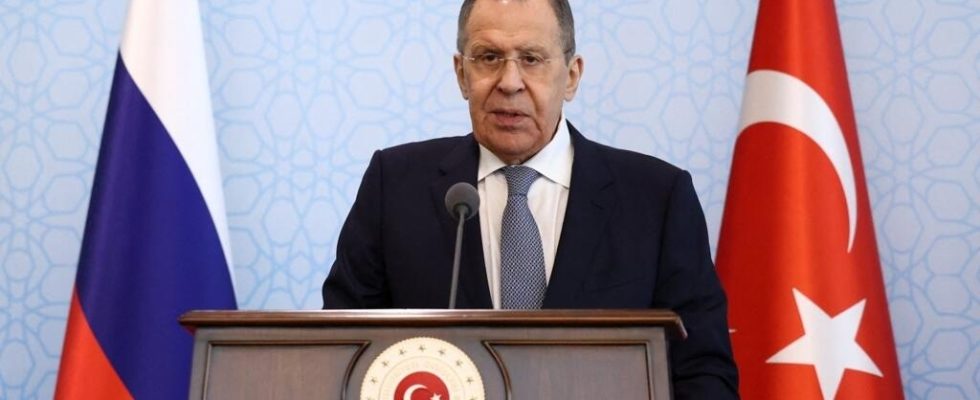Russian Foreign Minister Sergei Lavrov is in Turkey this Friday, April 7, a member of NATO which stands out for its good relations with Moscow and its role as mediator in the war in Ukraine. Sergei Lavrov met his Turkish counterpart, Mevlüt Cavusoglu. Both have discussed numerous bilateral and regional issues. But it was the war in Ukraine and the Ukrainian grain deal that ministers reserved most of their comments.
With our correspondent in Istanbul, Anne Andlauer
On March 18, after intense talks, Russia agreed to extend for sixty days the July 2022 agreement allowing Ukraine to export its cereals via the Black Sea. Sixty days instead of 120, as hoped for by Turkish President Recep Tayyip Erdogan, sponsor of the agreement with UN Secretary General Antonio Guterres.
Russia complains about the maintenance of obstacles to its own exports of agricultural products and fertilizers. Although these products are not subject to Western sanctions, the latter reduce Russian shippers’ access to finance, insurance and ports. From Ankara, Sergei Lavrov indirectly threatened not to renew the agreement after 60 days:
” If they do not have the desire to honestly implement what United Nations Secretary General Antonio Guterres has proposed and persistently promoted, let them continue to ship products from Ukraine by land, rail and river. They have already set up the logistics. If necessary, we will work outside the scope of this initiative. We have the ability to do that with Turkey and Qatar. The presidents have already discussed these plans. Our exports to countries in need will not be affected. I promise. »
At his side, his Turkish counterpart Mevlüt Cavusoglu supported the Russian demands: “ The United States and the United Kingdom have taken some initiatives on the question of financing and insurance, but the problem persists. Similarly, some measures have been taken to export Russian fertilizers to African countries via certain Western countries such as the Netherlands, Estonia or Latvia, but not everything is settled. We have to say it, we have to be fair. When we say that, some ask us if we support Russia. No. The important thing is the continuation of this agreement. »
Since its entry into force, the agreement has allowed the export of more than 27 million tonnes of corn, wheat and other cereals to world markets.
► Read also : Africa, the first concerned by the extension of the Russian-Ukrainian agreement on cereals
